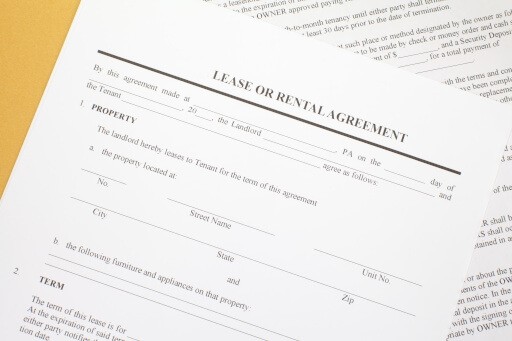
As much as renters insurance protects tenants, it also benefits landlords in many ways. Although it’s not always required, depending on your state laws, it’s a good idea to make it a requirement when leasing out a property. That way, you and your tenant are protected in case of on-site injuries, natural disasters, or other unforeseen incidents.
In this article, we’ll explain how renters insurance requirements can benefit your rental business and debunk some common misconceptions about it. Here’s a preview of what we’ll cover:
What Are the Benefits of Requiring Renters Insurance?
Renters insurance provides an extra layer of protection for both you and your tenants. While state and local laws can vary, adding a mandatory renters insurance policy to your lease can be a smart move. If your state permits renters insurance requirements, check out some of the benefits below:
It mitigates the threat of a lawsuit
Renters insurance is extremely helpful when it comes to keeping you out of court. Without it, situations involving damage to a tenant’s belongings or accidents on the property can lead to costly claims against the landlord.
For instance, if a tenant hosts guests and one of them gets injured, the absence of renters insurance could leave the landlord vulnerable to legal claims from the injured party or their hospital. Even if the landlord’s insurance covers the incident, it often results in increased premiums. However, if the tenant has renters insurance, it shifts the responsibility, shielding the landlord from such complications entirely.
It reduces your responsibility
In the event of a fire or another damage-causing incident at your rental property, tenants may assume it’s your responsibility to provide temporary housing. In some states, landlords are legally obligated to offer relocation assistance. However, if your tenants have renters insurance, this burden shifts away from you. Renters insurance typically covers temporary housing costs, allowing you to focus solely on repairing your property.
It will help you find responsible tenants
If an applicant claims they cannot afford renters insurance, it may indicate that their income does not meet your rental requirements. Renters insurance is a relatively low-cost expense, and if a potential tenant is unable or unwilling to pay for it, there’s a higher risk they may struggle to pay rent in full or on time.
Many renters, whether required or not, choose to purchase and maintain renters insurance for their own protection. If you encounter a tenant who cannot afford this additional cost or seems indifferent to securing a policy, it might be wise to consider other applicants who are better positioned to meet their financial responsibilities.
It covers your deductible
If a tenant accidentally damages your property, such as by causing a fire, your insurance policy may cover the repair costs. However, you would still be responsible for paying the deductible, which could be a significant expense. This is where renters insurance can make a difference. If your tenant has a policy, it will likely cover your homeowner’s insurance deductible, reducing the financial strain on you.
It will give you peace of mind
Knowing that your tenants have renters insurance is one less thing you have to worry about as a landlord. You won’t have to face lawsuits and pay accompanying legal fees for issues that are not your responsibility. Both you and your tenant will benefit from purchasing and maintaining a renters insurance policy, and it will keep both of you from having to deal with uncomfortable financial and legal scenarios in the future.
Common Misconceptions about Renters Insurance
Renters insurance is often misunderstood, especially by landlords. If you believe these myths, you may overlook the importance of requiring renters insurance in your lease. To ensure these myths don’t influence your decisions, we’re here to set the record straight.
Let’s debunk some of the most common myths about renters insurance:
Renters insurance only benefits the renter
Many landlords mistakenly believe renters insurance only benefits tenants, but that is far from true. Renters insurance covers a tenant’s personal belongings in case of damage or loss from events like fire or theft, reducing the likelihood of disputes over reimbursement. Many policies also include liability coverage, which can protect both the tenant and landlord if someone is injured on the property, covering medical expenses and potential lawsuits. Additionally, renters insurance often provides coverage for additional living expenses, ensuring tenants have temporary housing in the event of a disaster, which can prevent pressure on landlords to assist.
Renters insurance is expensive
Many people assume renters insurance is a costly addition, but it’s actually one of the most affordable types of insurance available. In most cases, renters insurance costs less per month than a streaming subscription or a daily coffee. For landlords, emphasizing its low cost can help reduce tenant resistance to the requirement. Making renters insurance mandatory benefits everyone without placing a financial burden on tenants.
Property insurance covers everything
It’s a common misconception that a landlord’s property insurance protects tenants’ personal belongings—it does not. Property insurance typically only covers the building structure and the landlord’s own assets. Without renters insurance, tenants are left unprotected in the event of fire, water damage, or theft. Educating tenants on this distinction is crucial to ensure they understand the importance of obtaining their own coverage.
Renters insurance is a one-time purchase
Renters insurance isn’t just a one-time purchase—it requires ongoing attention. Tenants typically set up their policy before moving in, but most policies need to be renewed annually. As a landlord, it’s important to schedule yearly check-ins to ensure your tenants maintain active renters insurance coverage. If renters insurance is a requirement outlined in the lease, a tenant canceling their policy or allowing it to lapse could be considered grounds for eviction.
Learn More About Renters Insurance on Apartments.com
Renters insurance is a small investment that can make a big difference—for both tenants and landlords. By requiring it in your lease agreements and helping tenants understand its value, you’re fostering a more secure and responsible rental environment. Want to dive deeper into how renters insurance works and why it matters? Visit Apartments.com to explore helpful articles, guides, and tools designed to simplify renters insurance for everyone involved.
This article was originally published on February 28, 2020, by Megan Bullock.
This article is for informational purposes only. Insurance requirements and regulations vary widely by location and individual circumstances. Before making any decisions regarding insurance, consult with a licensed insurance agent familiar with your specific situation and your local laws.
FAQs
What does renters insurance cover?
Renters insurance typically covers damage to a tenant's personal belongings, liability for accidents or injuries that occur on the rental property, and additional living expenses if a tenant is temporarily displaced from their home.
Can a landlord require renters insurance?
Yes, landlords can require renters insurance as part of the lease agreement to protect their property and reduce liability risks.











